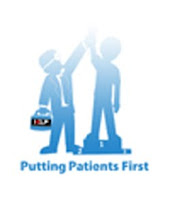
Free Community Service from HELP. Click here to Subscribe to FREE Smses on your mobile and protect yourself from the deadly disease which has made a comeback ! Prevent and Fight Malaria.Download your brochure from
http://www.hpa.org.uk/Publications/InfectiousDiseases/TravelHealth/Malariainformationfortravellerleaflet/Malaria is a serious illness that is common in many tropical countries.
Symptoms can develop rapidly and it can kill you, but if you take the
correct precautions you can greatly reduce your risk of catching it. The
disease is spread by mosquitoes that bite at night (dusk to dawn).
You can protect yourself against malaria, and you must do so every time
you visit a country with malaria. This is very important, even if you grew
up or lived there and are now returning to visit your friends or family.
No one has full immunity to malaria. Any partial protection you may have
from being brought up in a malarious country is quickly lost when you live
in countries with no malaria, so everyone needs to take precautions to
avoid getting malaria.
Your family are at risk as well. Babies and children, especially those born
outside the tropics, can get very sick with malaria very quickly. It is also
particularly dangerous for pregnant women, who should avoid visits to
malarious areas. Use the ABCD approach to protect yourself.
ABCD approach (be Aware of the risks; use Bite prevention; take Chemoprophylaxis;
seek early Diagnosis).
A – be Aware of the risks
Malaria is common in many parts of Africa, Asia, the Indian subcontinent,
South America and some areas in the Far and Middle East. The risk is
A5 malaria leaflet 3 Augustparticularly high in sub-Saharan Africa.
See your doctor, nurse or pharmacist providing travel health services or
go to a travel clinic to check if there is malaria in the country you are
visiting. They can give you malaria prevention advice. Seek their advice
6-8 weeks before your trip, if possible, but remember it is never too late
to seek advice. Even last-minute travellers can get useful protection.
B – Use Bite Prevention
• Use an insect repellent containing DEET. Other effective repellents are
picaridin (icaridin) and lemon eucalyptus. These are readily available in
pharmacies or camping and travel shops. Remember to reapply insect
repellent frequently and to follow the manufacturer’s recommendations,
particularly when applying repellents to young children.
• Cover up with trousers and long-sleeved clothes after sunset.
• Treat clothing with insecticides.
• Use knockdown sprays or coils to kill any mosquitoes before you go to
bed. These products are readily available in pharmacies or travel and
camping shops.
• Sleep in a properly screened, air conditioned room or under a
mosquito net that has been treated with insecticide.
Homoeopathic or herbal remedies, electronic buzzers, garlic and
vitamins do not protect against mosquito bites.
C – Take Chemoprophylaxis (malaria tablets)
Tablets to prevent malaria play a very important role in protecting you.
There are a number of different types. Ask your doctor, nurse or
pharmacist providing travel health services which type of tablets you
and your family need.
Make sure you understand how and when to take your tablets. You need
to start taking them before you go, continue all the time you are away
and also for a period of time when you return. Remember – it is vital that
you finish the course of tablets when you get back to make sure you are
properly protected. Homoeopathic or herbal remedies do not protect
against malaria and must not be used in place of antimalarial tablets.
D – seek early Diagnosis if you become unwell
Although modern prevention methods are highly effective and can
greatly reduce your risk of dying from this dangerous disease, they do
not give 100% protection.
If you or any of your family has a fever or flu-like illness after being in a
country with malaria you must see your doctor urgently. Tell them where
you have been and mention malaria. Remember you could still have
malaria, even a year after a trip to a malaria-risk region.



